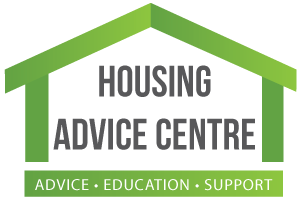What is social or public housing?
Social housing is short-term or long-term housing that is provided by the government, a regional or local council, or a not-for-profit. It is aimed at aiding low-socioeconomic individuals or those who have particular needs, who may have difficulty purchasing their own house.
Do I qualify for social housing?
To qualify for social housing with Kāinga Ora (Housing NZ) or community housing provider you need to:
- Be at least 16 and be a New Zealand citizen or permanent resident, be in the country at the time, with New Zealand as your usual home;
- Have after-tax income under $694.41 a week if you have no partner and no dependent children or under $1,068.33 a week if you have a partner and/or dependent children; and have less than $42,700 in cash savings or other property that could be converted into cash; and,
- Demonstrate a high need for social housing in accordance with the “Social Allocation System,” which determines your need from areas, such as: who is in your household? where are you currently living? what is your ability to find a suitable house in the current market?
To qualify for social housing with Palmerston North City Council you need to:
- Be 65 or over and have a community services card, or over 18 and receiving a Supported Living Payment; or,
- Be a low-income family or single person with a Community Services Card, or an international student family from a developing country;
- Any assets you have are under $40,000 (excluding a card, household and personal effects, and prepaid funeral arrangements); and,
- Be able to have enough support to live independently.
How do I get into social housing?
To get into government-subsidised housing you can take two pathways.
One of the pathways to get into social housing is to ring the Centralised Unit Housing team at the Ministry of Social Development, who oversee referrals to Kāinga Ora. They are contactable at 0800 673 468. When you contact them, they will take you through a series of questions that will assert your “A-levels,” which they measure the following: adequacy, suitability, accessibility, sustainability, and affordability. The aim is to have A-levels at an A19 or A20 to be considered for social housing. Lower A-levels can be increased through budgeting and planning regarding the management of indebtedness, or poor sustainability.
You can contact Moneywise Manawatu if you want to make a booking to discuss budgeting.
Another pathway is to contact Palmerston North City Council (PNCC), to make a meeting with their Housing Advisors. You can contact PNCC directly at info@pncc.govt.nz or call 06 356 8199 to make a booking with an Advisor.
You can fill out a social housing application process here.
What do I need to apply for social housing?
When applying for social housing you will need the following:
- Proof of identity, e.g. driver’s license, passport or birth certificate;
- Proof of your income, e.g. wages, My MSD;
- Proof of your assets and their value;
- Full birth certificate of any dependents in your care; and,
- Evidence of your challenges when searching for housing.
This information is needed by the Centralised Housing Unit team or by the Palmerston North City Council Housing Officers, to discuss with you your application for social housing.
Who do I contact if I need to talk about issues with my social housing home?
If you are having difficulties with your social housing home, you need to go to the organisation that oversees the administration of this home. This is typically Palmerston North City Council or Kāinga Ora. Depending on your contract you may be able to get the Manawatū Tenants’ Union to support you if you have a dispute with their organisation, if you are on a tenancy agreement in social housing. Refer to the section on tenancy on our website, if you need additional information regarding resolving issues with your housing provider on a tenancy agreement.
